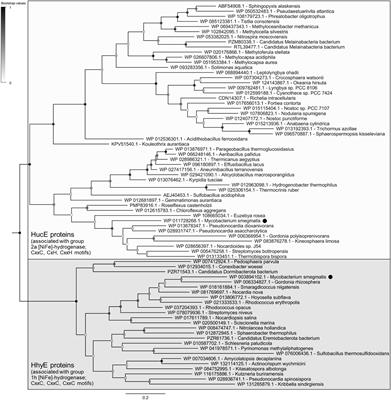EDITORIAL
Published on 30 Jan 2020
Editorial: Microbial Hydrogen Metabolism
doi 10.3389/fmicb.2020.00056
- 6,758 views
- 11 citations
14k
Total downloads
72k
Total views and downloads
You will be redirected to our submission process.
EDITORIAL
Published on 30 Jan 2020
ORIGINAL RESEARCH
Published on 22 Nov 2019

ORIGINAL RESEARCH
Published on 16 Aug 2019

ORIGINAL RESEARCH
Published on 17 Jul 2019

ORIGINAL RESEARCH
Published on 10 Jul 2019

ORIGINAL RESEARCH
Published on 01 May 2019

REVIEW
Published on 14 Feb 2019

REVIEW
Published on 04 Dec 2018
![Complex Multimeric [FeFe] Hydrogenases: Biochemistry, Physiology and New Opportunities for the Hydrogen Economy](https://www.frontiersin.org/files/myhome article library/421914/421914_Thumb_400.jpg)
REVIEW
Published on 23 Nov 2018

ORIGINAL RESEARCH
Published on 21 Nov 2018
![Insights Into the Redox Sensitivity of Chloroflexi Hup-Hydrogenase Derived From Studies in Escherichia coli: Merits and Pitfalls of Heterologous [NiFe]-Hydrogenase Synthesis](https://www.frontiersin.org/files/myhome article library/425872/425872_Thumb_400.jpg)
ORIGINAL RESEARCH
Published on 11 Jun 2018

